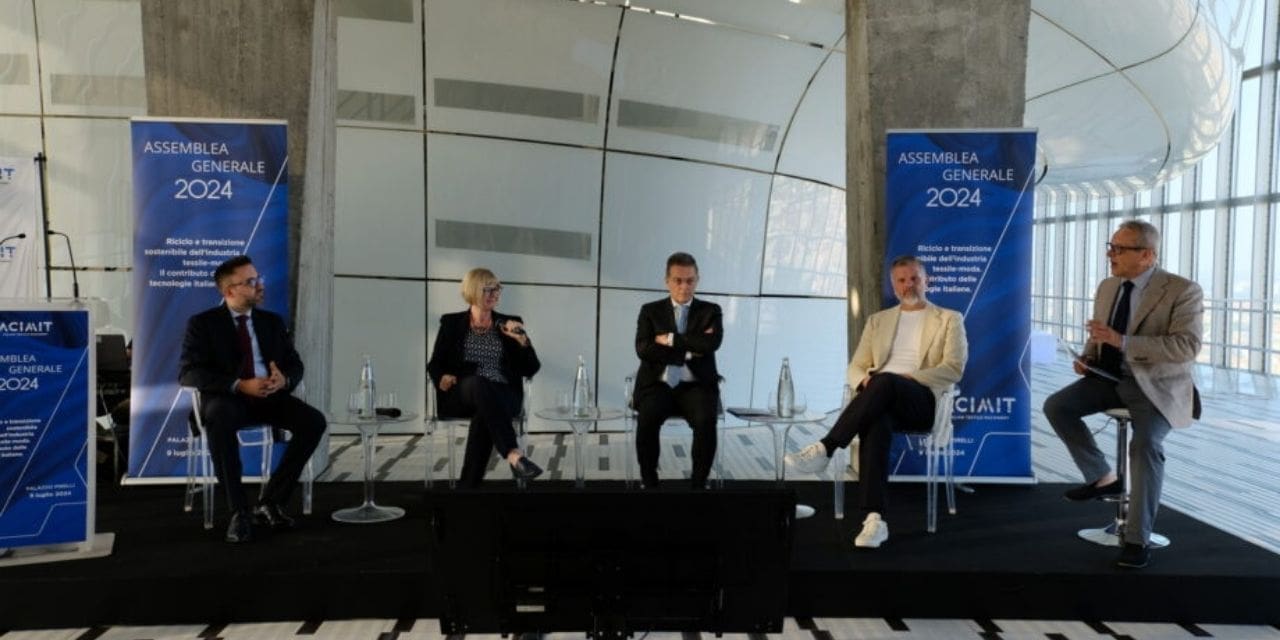ACIMIT, the Italian Textile Machinery Manufacturers Association, conducted its General Assembly in Milan on July 9, with an emphasis on innovation despite the uncertainties that define the current global landscape. Marco Salvadè, president of ACIMIT, presented data from the Italian textile machines sector. Both output and exports saw a 16% decline in 2023, totaling 2.3 billion euros and 2 billion euros, respectively.
The primary markets for Italian producers of textile machines are still China, Turkey, India, and the US. The demand for machinery in these markets was sluggish in 2023, but in the first quarter of this year, there were some encouraging signs, particularly from the Chinese market and from Egypt, Pakistan, Brazil, and Japan once more. Salvadè predicted that 2024 will still be a year filled with many unknowns, primarily as a result of shifting final demand and the unpredictability of the geopolitical environment.
Along with a few other nations like China, Germany, and Japan, the Italian textile machinery sector continues to lead in an exceptionally challenging global environment with a still slowing market. The president of ACIMIT stated, “Our industry is known throughout the world for its dependability, expertise, and the distinctively Italian ability to combine tradition and innovation.” Innovation must continue to move quickly in order to meet the problems facing Italian manufacturers in helping textile companies make the transition to a sustainable business model.
The public portion of the ACIMIT General Assembly focused on a topic that is very relevant right now: textile recycling, in order to draw attention to the potential that the European green transition presents for technology suppliers. Through a variety of measures, including ecodesign, extended producer responsibility (EPR), waste export restrictions, and green claims, the EU’s legislative guidelines seek to expedite the green and circular transformation of the textile industry.
As a result, technologies are crucial in helping businesses involved in the new circularity supply chain by offering solutions for everything from clothing sorting and selection to preparation stages and recycling procedures. Throughout the program, a number of presenters concurred that, at this critical juncture in the supply chain, the expertise and resources of the Italian textile and textile machinery industry have to be properly utilized.

